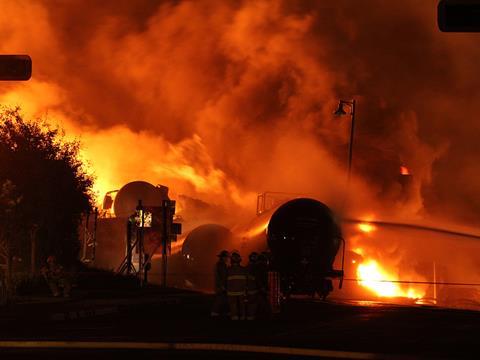
CANADA: A new liability and compensation regime under the Safe & Accountable Rail Act comes into force on June 18, designed to ensure that in the event of a rail accident sufficient resources will be available to adequately compensate potential victims and pay for clean-up costs.
Federally-regulated railways will be required to carry a mandatory minimum level of insurance in order to maintain a Certificate of Fitness to operate from the Canadian Transportation Agency. The level of insurance required will be based on the type and volume of dangerous goods carried, ranging from C$25m to C$1bn. Two middle levels, C$100m and C$250m, are to be phased-in by June 18 2017 to provide short line operators with additional time to adjust.
The new regime also establishes a Fund for Railway Accidents Involving Designated Goods. Shippers of crude oil on federally-regulated railways will be required to contribute an inflation-linked levy of C$1·67 per tonne towards this supplementary compensation fund, which would pay costs associated with accidents involving crude oil which are above the mandatory insurance level.
‘Reinforcing rail safety is a top priority for the government of Canada’, said Minister of Transport Marc Garneau. ‘However, should a rail accident take place, the strengthened liability and compensation regime will ensure that the polluters, and not Canadian taxpayers, will be held responsible for compensating victims and paying for clean-up.’

















